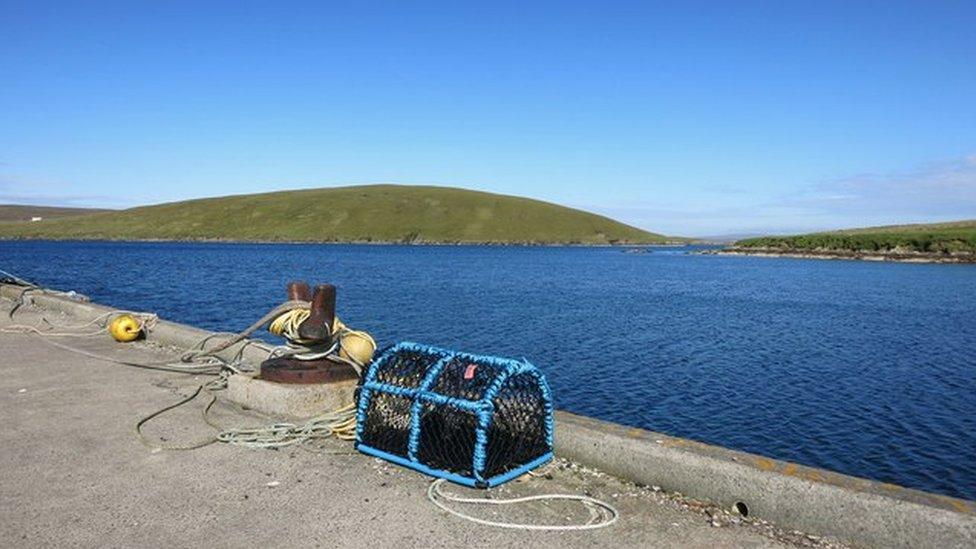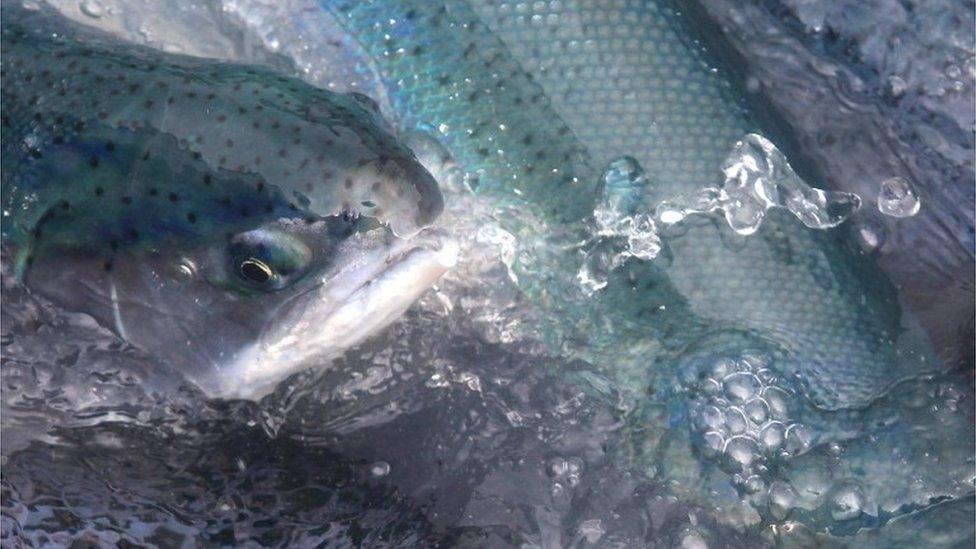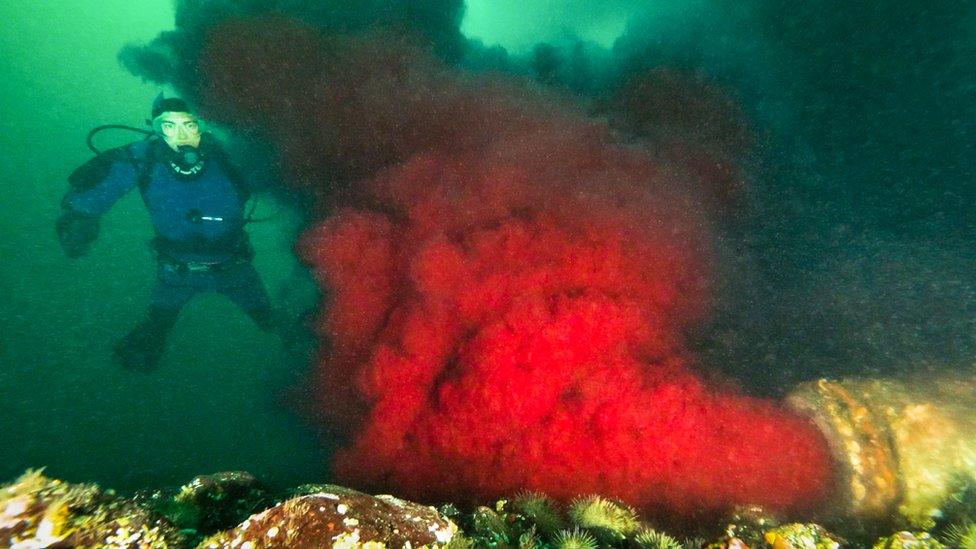Shetland salmon packing factory leaks 'blood water' into sea
- Published

The company has denied that untreated waste water was discharged into Mid Yell Voe
A Shetland salmon packing factory leaked "bloody" sewage into the sea, BBC Scotland has been told.
People had complained of an "offensive odour" coming from the Cooke Aquaculture's Mid Yell Plant.
It led to a Scottish Environment Protection Agency (Sepa) investigation in 2017 - which uncovered "significant" breaches of environmental conditions.
Cooke Aquaculture said it "never" discharged untreated waste water from its Mid-Yell packing facility.
A Freedom of Information request has revealed that Sepa was contacted by a member of the public in August 2017, who reported "weekly offensive smell complaints from locals, the school and tourists".
It led to the environmental regulator visiting the site on the island of Yell - which, according to the inspector's report, uncovered untreated overflow from blood water tanks discharging into Mid Yell Voe.
Sepa identified one "gross" and two "significant" breaches of Environmental Limit Conditions related to this activity - but it is reported that only "small quantities" of blood water were leaked into the sea.
Scottish government advice, external says untreated effluent from processing plants risks spreading infectious salmon anaemia.
The incident has prompted an environmental campaigner to call on the Scottish Salmon Producers Organisation to expel Cooke Aquaculture due to breaches of the industry's code of practice relating to the spread of infectious diseases.
'A huge embarrassment'
Don Staniford from the Global Alliance Against Industrial Aquaculture said: "It's not just disgusting. This really is a potential disease disaster.
"There are codes of practice in place in relation to the treatment of processing plant waste and here you have Cooke Aquaculture violating that and discharging untreated blood water directly into the sea.
"Cooke's tagline is 'refusing to go with the flow' and here we have a case of Cooke refusing to go with the flow with environmental regulations, so I think it is a huge embarrassment for this multinational company."

Salmon producers say they take effluent control seriously
General manager of the Scottish Salmon Producers Organisation David Sandison said Scottish salmon farms take effluent control "very seriously".
He added: "Following a visit it looks as if steps have been taken to deal with any issues that might have arisen from that investigation."
A spokesperson for Cooke Aquaculture said: "Cooke Aquaculture Scotland has never discharged untreated wastewater from its Mid-Yell packing facility and the company has requested that the Scottish Environment Protection Agency (Sepa) correct errors in their report noting otherwise.
"The Sepa report was issued in connection with an odour issue at the packing facility in August which prompted inspection by the Sepa on August 14, 2017. The odour came from treated water foam in a manhole at the facility. The wastewater had been treated through two filter processes and ozonation.
"The wastewater had an odour but it was not untreated as the SEPA report states.
"The company corrected the odour issue immediately in August. Among those measures, the manhole was heightened to ensure no future leakage of any materials. Cooke also implemented a regular filter cleaning schedule and added lids to their holding tanks, which aid in containing odours."
Suspected pollution
Sepa chief officer Anne Anderson said: "Sepa works every day to protect Scotland's environment and investigates reports of suspected pollution when we receive them. We are clear that compliance is not optional.
"Following a complaint about odour and effluent discharge from Cooke Aquaculture Scotland's site at Mid Yell in August 2017, a Sepa officer attended the site to carry out an inspection. The inspection identified problems with odour and a discharge of effluent.
"Sepa's report was based on the information supplied by the operator at the time of the inspection in August. The company has since advised that the discharge from the manhole was treated, and is in the process of providing information to support this. The fact remains the discharge should not have happened."
Ms Anderson said measures had been agreed to address the problem.
"The operator, who responded swiftly, has confirmed that all agreed actions have been completed and has supplied evidence to prove this. We are satisfied that our requirements have been met and an inspection will be carried out in due course," she said.
"Sepa is continuing to work with Cooke Aquaculture Scotland to ensure the site is compliant with all regulations and licences."
- Published29 November 2017
